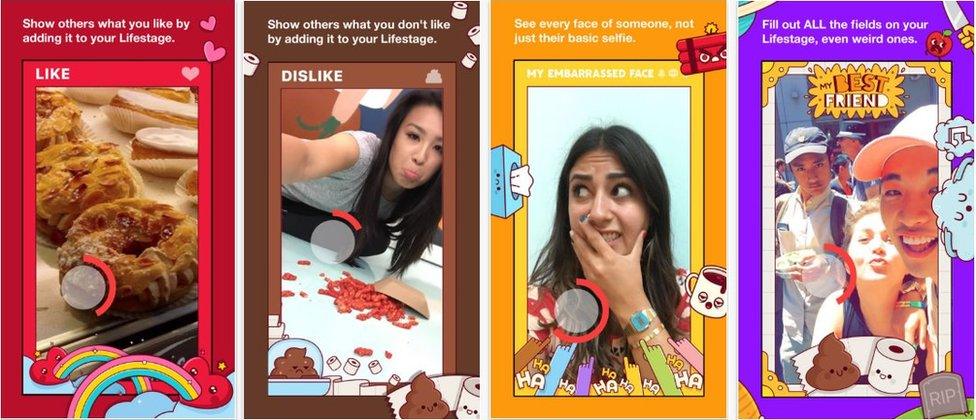Facebook's app for under-21s Lifestage flops
- Published

Lifestage required at least 20 people from the same school to be members to let them see each other's posts
Facebook has killed off a video-focused app targeted at under-21s less than a year after it was launched.
Lifestage was designed to connect students going to the same school or university, making all of their posts available to each other.
But it faced criticism for having limited privacy controls and a "confusing" user interface.
The firm told Business Insider, external it had "learned a lot" from the app and would feed this into Facebook itself.
Lifestage was developed by a product manager who was a teenager himself when it became available on the iOS App Store in late August 2016.
Members were encouraged to answer personal questions by filming video replies and were rewarded with emoji graphics for doing so.
Users were supposed to be under 21 to see others' profiles, but the software could be fooled into providing access if older members typed in false birth dates.
The app expanded to Android in October 2016 but never achieved mass adoption.
It joins a lengthening list of other cancelled apps from the firm, which includes:
Groups - a standalone way to engage with common-interest communities and to arrange events with families and friends
Poke - a means to send messages to friends that disappeared after 10 seconds
Slingshot - a messaging service that let users draw on top of the photos and videos they sent to each other
Paper - a newsreading app whose design principles formed the basis for Facebook's Instant Articles, external
Notify - a way to set up news story notifications from dozens of publishers
Riff - a video-sharing service in which users could build on the clips made by their friends
Rooms - a discussion app that let members share thoughts and media without revealing their true identities
- Published22 August 2016
